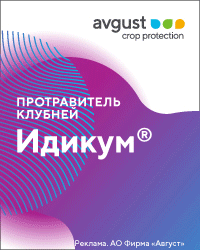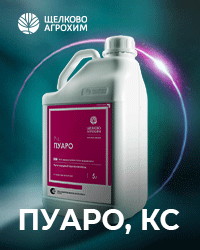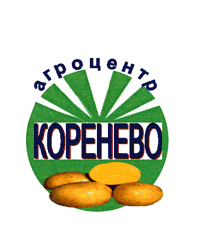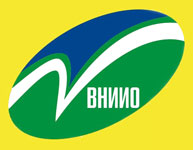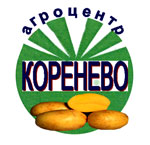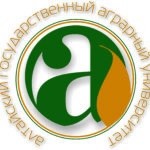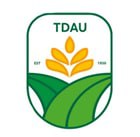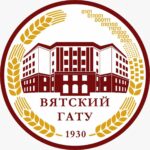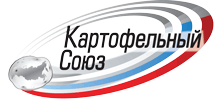UDC 635.64:631.526.325:631.524.86
https://doi.org/10.25630/PAV.2020.32.41.007
Gavrish S.F., Redichkina T.A., Buts A.V., Artemyeva G.M.
The article provides information on the study of the collection of F1 tomato hybrids (Solanum lycopersicum L.) of foreign breeding from various firms-originators recommended for cultivation in regions with a strong spread of tomato yellow leaf curl virus. All hybrids had a complex of economically valuable traits and a set of genes for resistance to the main diseases of tomato, including a new dangerous pathogen for the South of Russia with a maximum potential risk — the tomato yellow leaf curl virus (TYLCV). The studies were carried out in 2017-2018 in the Solanaceae Laboratory of LLC NIISOK and in the Molecular Diagnostics Laboratory of Plants of LLC Semenovod. A total of 34 F1 tomato hybrids were tested. The hybrids were assessed by a set of economically valuable traits. Molecular genetic analysis was also carried out for the presence and allelic state of the main resistance genes: Tomato mosaic virus (Tm2a), Fusarium wilt (I2), Werticillium wilt (Ve), Cladosporium fulvum (Cf9), Nematodes (Mi1.2), Tomato spotted wilt virus (Sw5), Tomato yellow leaf curl virus (Ty3a). It was found that all the analyzed tomato hybrids with the declared by seed originators resistance to yellow leaf curl virus were heterozygous for the Ty3a gene. Based on the conducted research and taking into account the market requirements, models of F1 tomato hybrids for protected ground for the South of Russia have been developed. A promising tomato hybrid should have an indeterminate growth type with shortened internodes (4.5-5 cm) and good foliage. Tomato fruits should have a uniform red color without green shoulders, with a flat-round or round shape of the fruit and with an average weight of 220-270 g. To increase the transportability of tomatoes, it is necessary that the fruits are highly firm and characterized by good shelf life. The yield of tomato hybrid should be more than 30 kg/m2, and marketability should be at least 85%. The tomato hybrid should have the following set of resistance genes in a heterozygous state: Ty3a, Mi1.2, Cf-9, and also in a homozygous state: Tm2a, I2, Ve.
Key words: tomato, hybrid model, tomato viruses, TYLCV
Gavrish S.F., D.Sci. (Agr.), professor, leading research fellow of the Solanaceae Laboratory of LLC NIISOK. Phone: +7 (499) 551-54-00. E-mail: gavrish@gavrish.ru
Redichkina T.A., Cand. Sci. (Agr.), research fellow of the Solanaceae Laboratory of LLC NIISOK. Phone: +7 (499) 551-54-00. E-mail: redichkina@gavrish.ru
Artemyeva G.M., Cand. Sci. (Biol.), research fellow of the Solanaceae Laboratory of LLC NIISOK. Phone: +7 (499) 551-54-00. E-mail: artemieva@gavrish.ru
Buts A.V., head of the laboratory of molecular diagnostics of plants, LLC «Semenovod». E-mail: coloney-alex@mail.ru
- Finmarket [Web resource] URL: http://www.finmarket.ru/news/5149005. Date of access: 05.11.2020 (In Russ.).
- Agrotreidingovaya platforma Prod.Center [Web resource] URL: https://www.prod.center/news/tag/2/11579-sebestoimost-proizvodstva-tomatov. Date of access: 05.11.2020 (In Russ.).
- Ignatov A.N., Gritsenko V.V., Dzhalilov F.S.-U. Risks of spreading new tomato virus diseases in the Russian Federation. Potato and vegetables. 2020. No5. Pp. 3–10 (In Russ.).
- Jalilov F. S., Akhatov E. A. Protection of tomato against diseases. Potato and vegetables. 2014. No5. Pp. 13–15 (In Russ.).
- Rataul Y.S., Brar J.S. Status of tomato leaf curl virus research in India // Trop. Sci. 1989. 29. No2. Pp. 111–118.
- Pilowski M., Cohen S. Tolerance to tomato yellow leaf curl virus derived from Lycopersicon peruvianum. Plant Disease. 1990. No3. Pp. 248–250.
- Top 10 plant viruses in molecular plant pathology. Scholthof K.B.G., Adkins S., Czosnek H., Palukaitis P., Jacquot E. et al. Molecular Plant Pathology. 2011. No12. Pp. 938–954.
- The heat-stable root-knot nematode resistance gene mi-9 from Lycopersicon peruvianumis localized on the short arm of chromosome 6. Ammiraju J.S., Veremis J.C., Huang X., Roberts P.A., Kaloshian I. Theor. Appl. Genet. 2003. 106(3). Pp. 478-484.
- Ag-Biotech, Inc. [Web resource] URL: https://agbiotech.net/dna-markers. Access date: 06.11.2020.
- Buts A.V., Budylin M.V Marker-mediated selection as a tool for accelerating the selection process of vegetable and melon crops. Innovative methods of vegetable crop selection. Scientific conference NIIOZG. Krymsk. 2017. Pp. 22-23 (In Russ.)
- Murray M.G., Thompson W.F. Rapid isolation of high-molecular-weight plant DNA. Nucleic Acids Res.1980. No8. Рр. 4321–4325.
For citing: Study of a collection of tomato hybrids with genetic resistance to the yellow leaf curl virus in Southern Russia. S.F. Gavrish, T.A. Redichkina, A.V. Buts, G.M. Artemyeva. Potato and vegetables. 2020. No12. Pp. 30-34. https://doi.org/10.25630/PAV.2020.32.41.007 (In Russ.).

